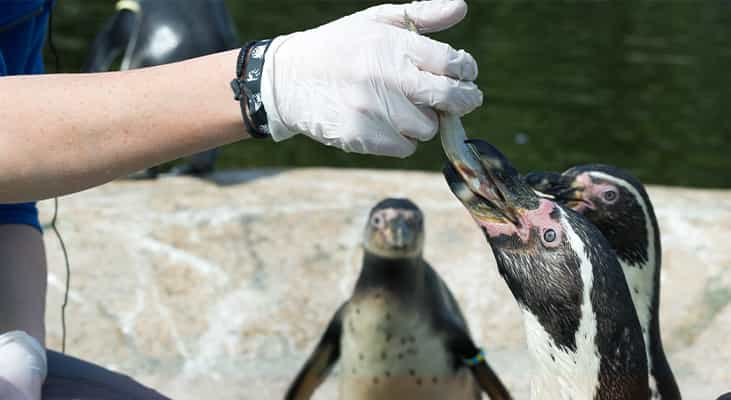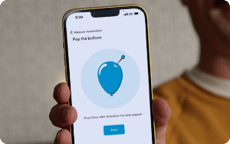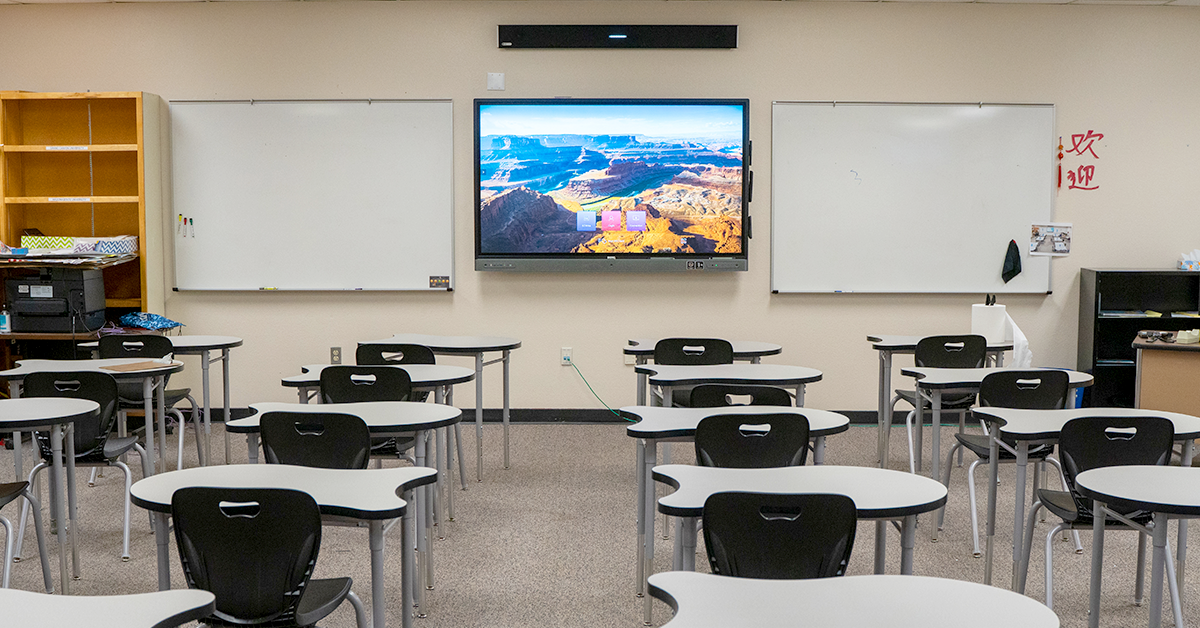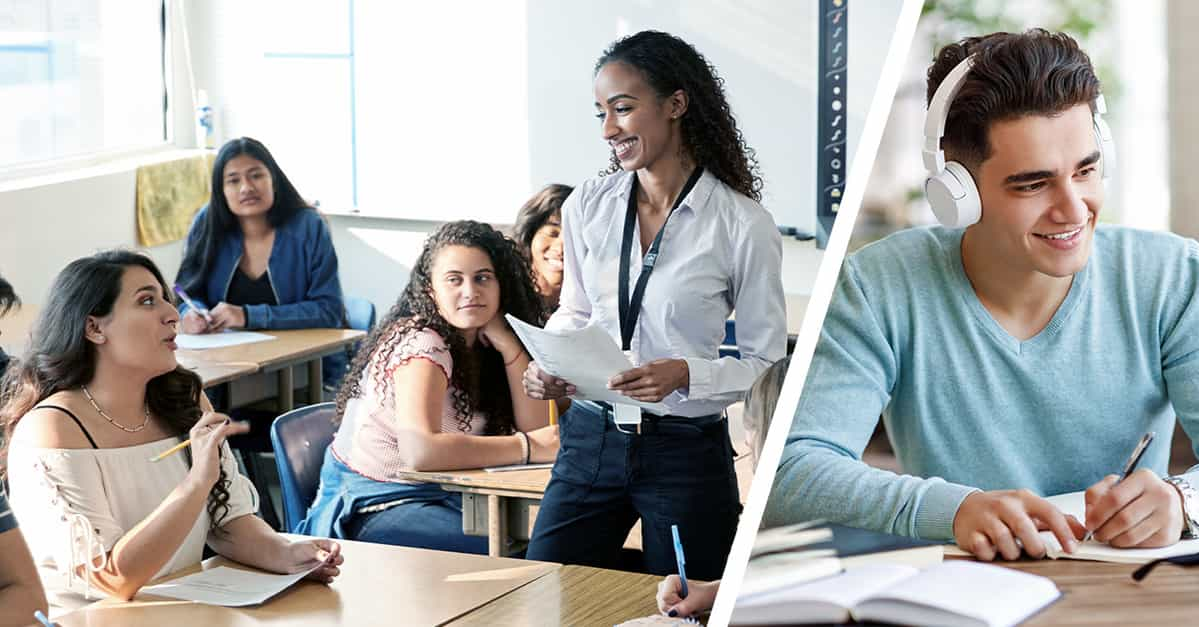7 virtual field trips to energize students and extend the classroom

Posted by Tricia Whenham on Sep 22, 2021 6:00:00 AM
Think back to your favorite memories from school. Chances are, there’s a field trip or two in the mix.
COVID-19 has sadly placed real limitations on field trips, with many districts forced to choose safer options. Luckily, in-person trips aren’t the only way to extend the learning experience. Virtual field trips let students “travel” to different sites, possibly farther away than they could ever hope to go in person, and do some incredible learning – without compromising anyone’s safety.
When it comes to virtual experiences, there’s nothing quite like a live, interactive session. Students can interact directly with an expert, asking questions and sharing ideas. And from zoos to museums to science talks, some amazing options are now available.
Here are 7 live virtual field trips to engage students, inspire teachers and extend your classrooms safely.
1. Zoos
Since the pandemic, many world-class zoos have pivoted to offering online programs. In these interactive sessions, students can ask questions of zoo staff and get up close with the animals, virtually. Or for an alternative option, many zoos now have live animal webcams that can be used to teach observation and inquiry skills.
Three sites to check out
Zoo Atlanta – Choose among several guided programs, including a live, virtual zoo tour and an interactive session focused on Ivan the gorilla.
San Diego Zoo – Watch a live camera view of several different animal enclosures, from elephants to platypuses.
Calgary Zoo – Attend virtual programs hosted by zoo educators that focus either on regions of the world or specific science topics.
2. Aquariums
Like zoos, aquariums have stepped up their virtual programming in response to COVID-19. The result is some amazing learning opportunities, especially for schools that aren’t close enough to visit an aquarium in person.
Three sites to check out
Seattle Aquarium – Access a variety of guided programs focused on the Pacific Northwest, or watch a live otter webcam.
Ripley’s Aquarium of Canada – Choose among several grade-based programs (up to eighth grade) or watch a virtual animal feeding.
New England Aquarium – Find several virtual animal encounter programs, including seals, penguins and a giant ocean tank encounter.

3. Museums
Live museum presentations let students take a journey through a period of history or style of art. While some are designed for large audiences (and may keep interaction to a minimum), others are highly interactive, with a museum educator guiding students as they take part in focused activities. And who wouldn’t want to travel to the greatest museums of the world – right from the classroom?
Three sites to check out
Metropolitan Museum of Art – Engage with works of art from the collection all focused on a particular topic, with the help of a museum guide.
National Women’s History Museum – Explore key topics in US history such as women’s suffrage and the civil rights movement. You can also access videos of some previous presentations.
The National Gallery – Choose from online talks focused on art through history. Sessions are geared for UK students but can be adapted to those from other countries.

4. Planetariums
Like the options above, planetariums and science museums aren’t found in every community. The chance to watch a star show narrated by a science educator or be led through a series of experiments is always valuable.
Three sites to check out
Museum of Flight – Select a guided program on the topic of space exploration or a live, interactive virtual planetarium show.
National Air and Space Museum – Find interactive programs ranging from virtual story times to virtual youth docent tours.
Carnegie Science Center – Choose from four science-related themes, each of which can be delivered with grade appropriate content for grades 3–12.
5. Virtual author talks
Even with all the writing and reading students do in school, the idea that authors are real people can be hard to grasp. Virtual author visits can be timed to coincide with a book study, letting students ask questions or share their thoughts on what they’ve read. But they can also be themed to the craft of writing, giving students the chance to learn specific strategies from the experts.
Three resources to check out
Scholastic Virtual Author Visits – Choose from a wide range of authors that are published by Scholastic. The program includes copies of the featured book so students can read ahead of the visit.
Society of Children’s Book Writers and Illustrators – Explore a list of authors who offer both virtual book talks and interactive sessions focused on writing.
Virtual author visit mistakes to avoid – Find a list of tips and warnings to help you get the most out of a virtual author visit.

6. Scientist talks
For younger students, virtual scientist programs let them explore a topic with someone who brings real-world credentials. For older students, it can open them up to career possibilities or give them access to the in-depth knowledge a teacher may not be able to provide.
Three sites to check out
Skype a Scientist – Search a database of thousands of scientists who have signed up to share their expertise and answer student questions.
Simon Fraser University – Get insights direct from scientists and university students in this series of programs targeted at high school classes.
Denver Museum of Nature & Science – Connect students with scientists in a variety of free live, interactive sessions.
7. Virtual career day
Career days aren’t exactly a field trip, but they have been similarly affected by COVID-19. Holding a virtual career day lets students explore different job paths without dealing with the complications of guest speakers in your classrooms. Plus opting for a Zoom call instead of an in-person visit may actually be easier for speakers to accommodate.
Three resources to check out
Planning a Virtual Career Fair – Access this step-by-step guide, complete with templates for invitations and feedback forms.
Virtual Career Day Videos and Activities – See how Polk County Schools structured their largely asynchronous career day activities.
Hosting a Virtual Career Fair – Get advice from two Texas educators on how they transformed their career days into virtual events.

Full-classroom engagement
What do you need to make a virtual field trip just as engaging as the real thing? It helps to have edtech products that are designed for maximum student engagement – and doesn’t take up teacher time troubleshooting issues.
To take full advantage of virtual events, make sure your audio solution reliably picks up voices in the entire classroom so the remote field trip facilitator can hear everything. Students should be able to ask questions and share comments naturally and directly, without the teacher in the room needing to repeat their words or pass around a mic. Here’s how we can help.
Built for the evolution of education
Nureva® audio solutions offer groundbreaking simplicity and value to educators looking to improve their virtual PD sessions, hybrid admin meetings or distance learning classes. Find out how we can help you realize your vision.

Posted by
Tricia Whenham
September 22, 2021















